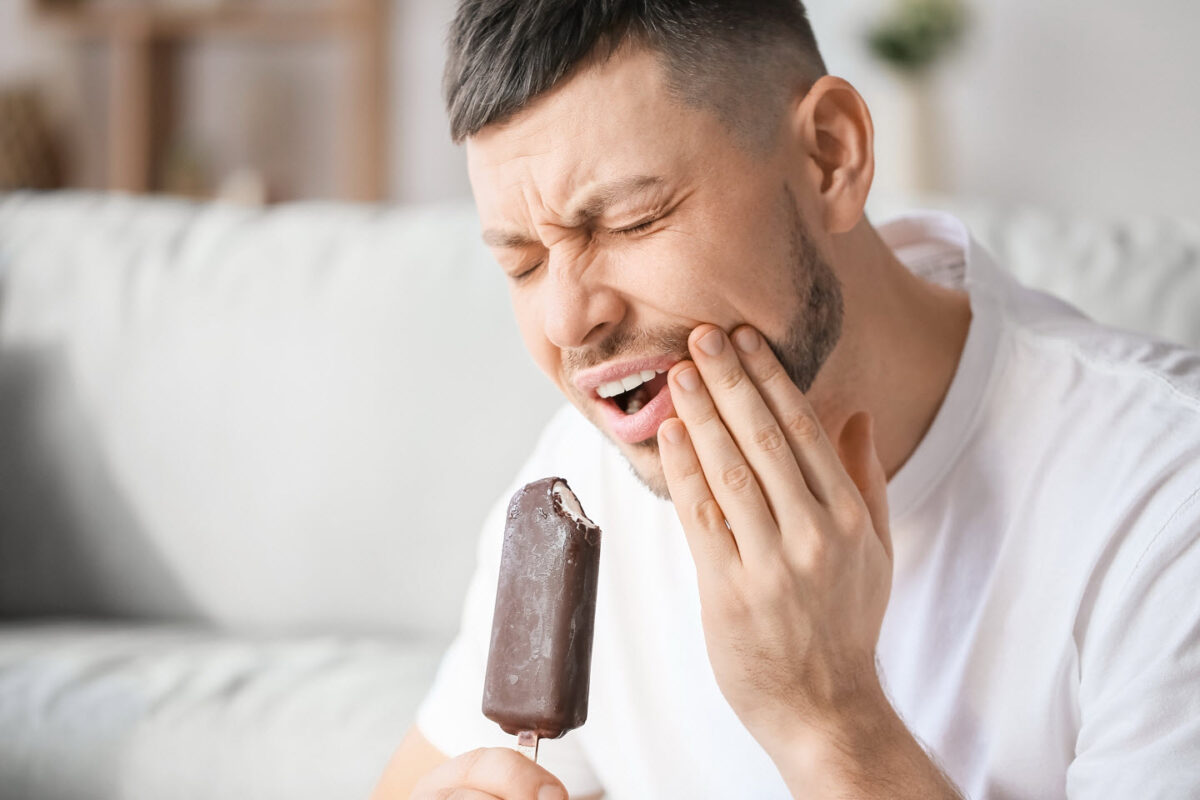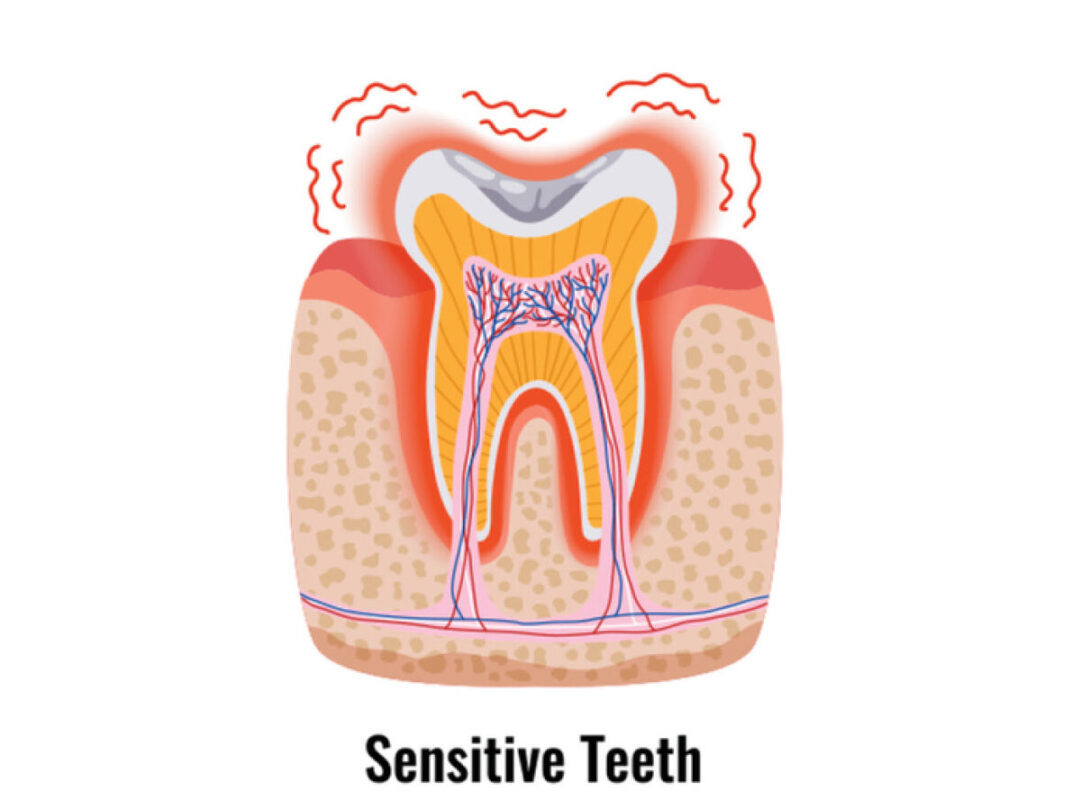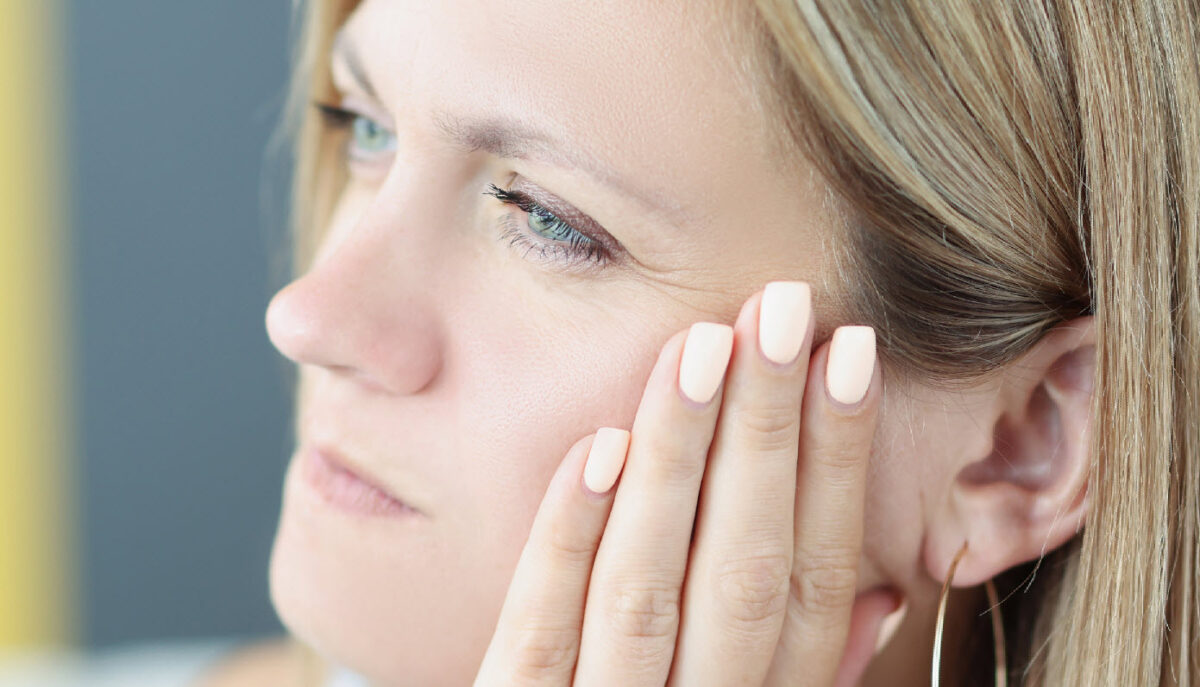Sensitive Teeth
What are sensitive teeth?
Do certain stimuli cause you pain or discomfort? What do we mean by certain stimuli? Hot foods, cold water, cold air, sticky foods, or acidic food. If your answer is YES, then you need dental care!
Sensitive Teeth Alert!
Tooth sensitivity refers to the tooth pain and discomfort you feel every time you have hot or cold foods and drinks. Some may even experience pain and discomfort by breathing cold air or eating sweet stuff like ice cream or acidic foods such as soda or fruit juices.
According to a journal published by the American Dental Association, tooth sensitivity is pretty common and affect 1 in 8 adults. Sensitive teeth need to be addressed by a dentist because they may be warning you about more serious dental problems.

Common symptoms of sensitive teeth
Make sure you inform your dentist about the following symptoms.
- unexplained tooth pain
- sharp pain while eating acidic food, hot foods, cold foods, ice cream, chocolate, etc
- Pain or discomfort during brushing
- unpleasant breath
- pain while biting down or chewing something, especially from the affected teeth
Why are my teeth sensitive?
Well, that’s a good question! Let’s see why we experience tooth sensitivity in the first place!
Do you know what enamel is? Yes, exactly! We’re talking about that hard protective shell that can protect your tooth against decay or damage. Enamel is a tough layer that covers the layer underneath, called dentin. Although enamel is the hardest substance in the human body, some factors can compromise its strength and wear it away.
Dentinal Hypersensitivity
Dentin has some small hollow channels called tubules; once the enamel erodes and dentin is exposed, these microscopic tubules will let heat or cold, or sensation, in general, reach the nerves inside your tooth, resulting in pain and sensitivity. So, you have your exposed dentin to blame for your sensitive teeth! But wait a minute, enamel cannot be eroded by itself and expose the dentin! So, there must be some factors that are leading to your tooth sensitivity. Let’s see who’s the main culprit?!

What causes sensitive teeth?
Several factors can lead to tooth sensitivity and cause tooth pain, such as enamel erosion or exposed tooth roots, but the best way to find out the main reason is to visit your dentist and have a check-up. If your teeth are sensitive and you wonder why, here are some possible reasons to match your case.
Do you brush your teeth too harsh?
Brushing your teeth twice a day is a must, and everybody knows that. However, brushing becomes a problem only when it’s done too vigorously!
If you brush your teeth using too much force, from side to side at the gum line, and with a hard-bristled toothbrush, it will damage your tooth surface and wear down the enamel on your tooth. The worn-down enamel can no longer protect the sensitive dentin. As a result, the microscopic hollow tubules react to hot or cold temperatures, acidic foods, or sticky foods and cause sensitivity.
To brush your teeth and keep your mouth fresh and healthy, and protect the protective layers of your teeth, use a soft-bristled toothbrush a fluoride toothpaste, and angle the toothbrush at 45º towards the gum line and start brushing with gentle circular motions.
You may have too many acidic foods and drinks!
The acid in some acidic foods or drinks attack your tooth enamel and cause dental erosion. Foods high in acid are one of your dental health’s enemies since acid will eat at your tooth enamel and gradually expose the dentin and lead to dentin sensitivity.
How about teeth grinding? Could that be the case?
Another factor that can cause sensitivity is tooth grinding. The condition, which can be due to stress or anxiety, can damage your tooth enamel. Your dentist may suggest using a mouth guard or a splint at night to help control this damaging habit. The mouth guard will be custom-made and fit your mouth.
Do you have gum recession?
Do you know what happens when your gums pull away from your teeth?! If gums pull back from the teeth, the root of the teeth will be exposed because it has lost all its protective layers. When the root surfaces of the teeth are exposed, you have a higher risk of experiencing sensitive teeth, decay, infection, or even tooth loss if not treated promptly. Shrinking gums can happen due to numerous factors, such as gum disease, brushing vigorously, poor dental hygiene, or even naturally as you age. Sometimes, tooth sensitivity can be an early warning sign of gum recession. Receding gums need treatment and are not to be ignored, or they can lead to more serious dental problems.
You don’t have gum disease, do you?!
Your gums’ health is as crucial to your oral health as your teeth’ health. Gum disease or periodontal disease often results from plaque and tartar buildup along the gum line that can cause infection and inflammation of the gums. You need to remove plaque by brushing your teeth regularly since excessive plaque buildup will harden and turn into a deposit called tartar and needs professional cleaning by a dentist. If left untreated, periodontal disease will damage your teeth bony support and tooth loss will occur.
People suffer from these symptoms if they have gum disease:
- tooth sensitivity
- bad breath
- loose tooth
- receding gums
- bleeding gums
- tooth loss (in severe cases)

It may be a cracked tooth, tooth decay, or loose fillings!
Cracked teeth can cause sensitivity and pain if a crack has travelled down to your tooth’ root. Tooth decay, loose fillings, or even injury to your tooth can also result in sensitive teeth. Make sure you have the affected teeth checked up by your dentist.
If you live near the Sunnybank area in Brisbane, even if you don’t experience discomfort, any dental problem needs emergency dental care near Sunnybank because it may easily become an oral health concern that requires major dental work to be treated.
Isn’t cosmetic dentistry at fault?
In case you have had your teeth whitened recently, you may experience sensitive teeth. The bleaching solution is likely to cause tooth sensitivity. In most cases, tooth sensitivity after teeth whitening is short-lived and will go away after a while. If, however, the problem persists, visit your dentist to receive necessary care.
Do you use whitening toothpaste?
Everyone loves to have a brilliant healthy smile, but everything comes with a price! Whitening agents in whitening toothpaste will brighten your smile but can also cause tooth sensitivity.
How to treat sensitive teeth
In most cases, you will need expert advice to either treat or prevent sensitive teeth. Your dentist will perform a thorough oral examination to find the root of the problem and offer the best treatment plan.
The dentist may suggest the following to address your tooth sensitivity.
- Use toothpaste for sensitive teeth (desensitizing toothpaste)
- Use a toothbrush with soft bristles
- Avoid applying too much force and pressure when you brush, especially when you reach the sensitive areas
- Limit your intake of acidic foods or sugary drinks
- Seek treatment for teeth grinding
- A fluoride gel may be needed to treat sensitive teeth
- A root canal therapy may be necessary if other treatments are not effective
- Fillings may also be suggested to cover the exposed roots
Are your teeth sensitive, and do you need help? Contact us on 0733434869. Our experienced Dentist at Pure Dentistry will offer the best treatment to treat your sensitive teeth.




































